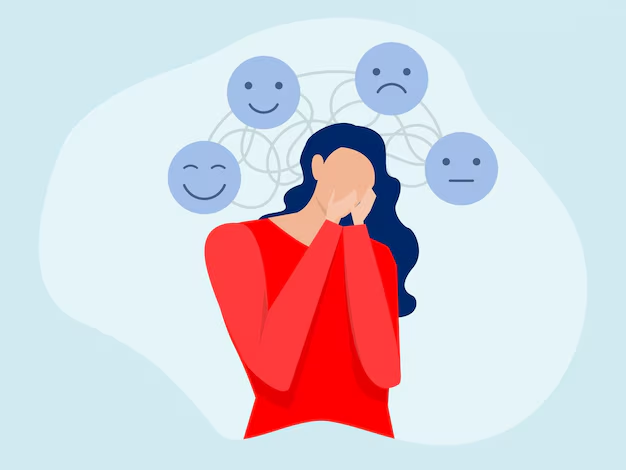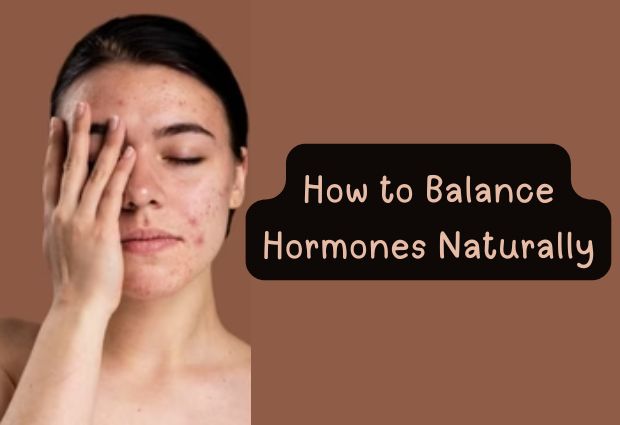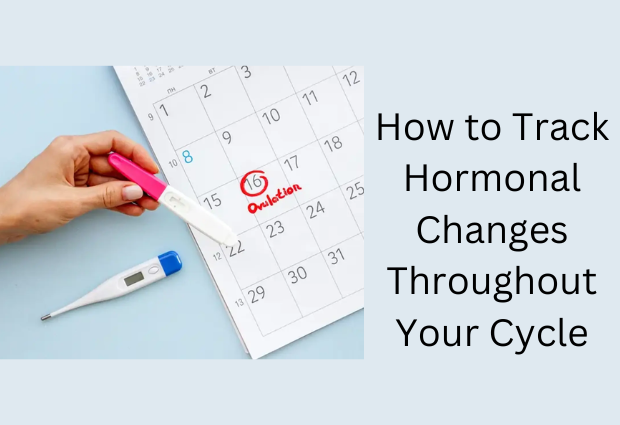Learn the key signs of hormonal imbalance in women. Discover common symptoms, causes, and practical tips for restoring balance and improving overall health.
Introduction:
Hormones play a critical role in regulating nearly every function in a woman’s body, from metabolism and mood to reproductive health and sleep.
When hormones fall out of balance, it can lead to a wide range of physical and emotional symptoms. Hormonal imbalance is more common than many realize and can affect women at any stage of life, from adolescence to menopause.
Recognizing the early warning signs is essential for timely diagnosis, effective management, and maintaining overall well-being.
This article explores the most important signs of hormonal imbalance, potential causes, and practical strategies to restore balance naturally and medically.
What is Hormonal Imbalance?
Hormonal imbalance occurs when there is too much or too little of one or more hormones in the body. These chemical messengers regulate vital processes including metabolism, reproductive function, mood, and sleep. Common hormones that can become imbalanced include:
-
Cortisol (stress hormone)
-
Insulin
Even minor fluctuations can cause noticeable symptoms, while prolonged imbalances can increase the risk of chronic conditions such as diabetes, heart disease, and osteoporosis.
Common Signs of Hormonal Imbalance in Women
Irregular Menstrual Cycles

One of the most noticeable signs of hormonal imbalance is changes in menstrual patterns. This may include:
-
Missed periods or very infrequent cycles
-
Extremely heavy or light bleeding
-
Spotting between periods
-
Severe menstrual cramps
These changes often indicate issues with estrogen, progesterone, or thyroid hormones, and can also be linked to conditions such as polycystic ovary syndrome (PCOS) or thyroid disorders.
Unexplained Weight Changes
Sudden weight gain or difficulty losing weight may be a sign of hormonal imbalance, even with proper diet and exercise. Hormones such as insulin, cortisol, and thyroid hormones play a major role in metabolism and fat storage. For example:
-
High cortisol levels from chronic stress can lead to abdominal fat accumulation.
-
Hypothyroidism (low thyroid hormone) can slow metabolism, causing weight gain.
-
PCOS-related insulin resistance can make weight management difficult.
Persistent Fatigue and Low Energy
Hormonal fluctuations can significantly impact energy levels. Women with hormonal imbalance may experience:
-
Constant tiredness despite adequate sleep
-
Difficulty focusing or “brain fog”
-
Weakness or low stamina during daily activities
Low thyroid function, adrenal hormone imbalance, or fluctuations in estrogen and progesterone are common contributors to chronic fatigue.
Mood Swings and Anxiety

Hormones affect brain chemistry, and imbalances can lead to emotional symptoms such as:
-
Irritability or frequent mood swings
-
Anxiety or panic attacks
-
Depression or persistent low mood
-
Decreased motivation and focus
Progesterone has a calming effect on the brain, while estrogen influences serotonin and dopamine levels. Imbalances in these hormones can contribute to mental health challenges.
Sleep Disturbances
Hormonal changes can disrupt sleep patterns, making it difficult to fall asleep or stay asleep. Common issues include:
-
Insomnia or restless sleep
-
Night sweats or hot flashes
-
Fatigue despite adequate sleep hours
Low progesterone or elevated cortisol can make it harder to relax and achieve restorative sleep, which in turn worsens other symptoms like fatigue and mood swings.
Skin and Hair Changes
Hormonal imbalance can manifest as noticeable changes in appearance:
-
Acne or oily skin, particularly in adulthood
-
Thinning hair or hair loss on the scalp
-
Excess hair growth on the face or body (hirsutism)
-
Dry skin or brittle nails
These changes are often linked to androgen (male hormone) excess, thyroid disorders, or estrogen-progesterone imbalance.
Digestive Issues
Hormonal fluctuations can affect digestion and gut health. Women may experience:
-
Bloating or water retention
-
Constipation or diarrhea
-
Food intolerances or changes in appetite
Estrogen and progesterone influence gastrointestinal motility and gut microbiome balance, which explains digestive changes during hormonal shifts.
Causes of Hormonal Imbalance
Hormonal imbalance can be triggered by a variety of factors, including:
-
Stress: Chronic stress elevates cortisol, disrupting reproductive and thyroid hormones.
-
Diet and Nutrition: Excess sugar, processed foods, and nutrient deficiencies affect hormone production.
-
Age and Life Stage: Puberty, pregnancy, postpartum, and menopause bring natural hormonal shifts.
-
Medical Conditions: PCOS, thyroid disorders, adrenal insufficiency, and endometriosis can cause imbalances.
-
Medications: Certain birth control methods, hormone therapy, and some prescription drugs can alter hormone levels.
Diagnosis and Medical Evaluation
If you notice multiple signs of hormonal imbalance, consult a healthcare provider. Diagnosis may include:
-
Detailed medical and menstrual history
-
Blood tests to assess hormone levels (thyroid, reproductive hormones, cortisol, insulin)
-
Imaging tests such as ultrasound for ovarian or thyroid evaluation
-
Referral to a specialist, such as an endocrinologist or gynecologist, for complex cases
Early evaluation allows for timely intervention, reducing the risk of long-term complications such as infertility, metabolic disorders, and bone loss.
Tips for Restoring Hormonal Balance
- How to Balance Hormones Naturally: A Step-by-Step Guide
-
Maintain a balanced diet rich in whole foods, healthy fats, lean protein, and fiber
-
Engage in regular physical activity, including both cardio and strength training
-
Manage stress through mindfulness, meditation, or yoga
-
Ensure adequate sleep, aiming for 7–9 hours per night
-
Avoid excessive sugar, processed foods, and endocrine-disrupting chemicals
-
Consider supplements only under medical supervision (e.g., vitamin D, magnesium, omega-3 fatty acids)
-
Follow medical advice for underlying conditions such as thyroid disorders or PCOS
FAQ
Q: Can hormonal imbalance affect fertility?
A: Yes, imbalances in estrogen, progesterone, and thyroid hormones can interfere with ovulation and reduce fertility. Early diagnosis and treatment improve chances of conception.
Q: Are mood swings always related to hormones?
A: Not always. While hormones influence mood, other factors like stress, nutrition, and mental health conditions also play a role.
Q: Can lifestyle changes correct hormonal imbalance?
A: In many cases, diet, exercise, stress management, and adequate sleep can significantly improve hormone balance. However, some conditions may require medical treatment.
Q: How long does it take to restore hormonal balance?
A: This varies depending on the underlying cause and individual factors. Lifestyle adjustments can show benefits within weeks, while medical treatments may take several months.
Q: When should I see a doctor?
A: Seek medical advice if you experience persistent symptoms such as irregular periods, unexplained weight changes, severe fatigue, or infertility.
Conclusion
Hormonal imbalance is a common but often overlooked issue that can affect physical health, emotional well-being, and reproductive function.
Recognizing the signs early—such as irregular periods, fatigue, mood changes, and skin or hair issues—can lead to timely evaluation and treatment.
By combining medical guidance with lifestyle interventions, women can restore hormonal balance, improve overall health, and enhance quality of life.
Monitoring symptoms, maintaining a healthy lifestyle, and consulting healthcare providers are key steps in taking control of hormonal health.


Pingback: Melasma in Women: Understanding the “Mask of Pregnancy”
Pingback: The Beginner's Guide to Women's Strength Training
Pingback: IgG4-Related Disease: Causes, Symptoms, and Treatment
Pingback: Common Types of Fungal Infections in Women and Prevention
Pingback: Candidiasis (Yeast Infection): Managing, and Preventing It in Women
Pingback: SheCure Healthy Woman Herbal Capsules Age Group